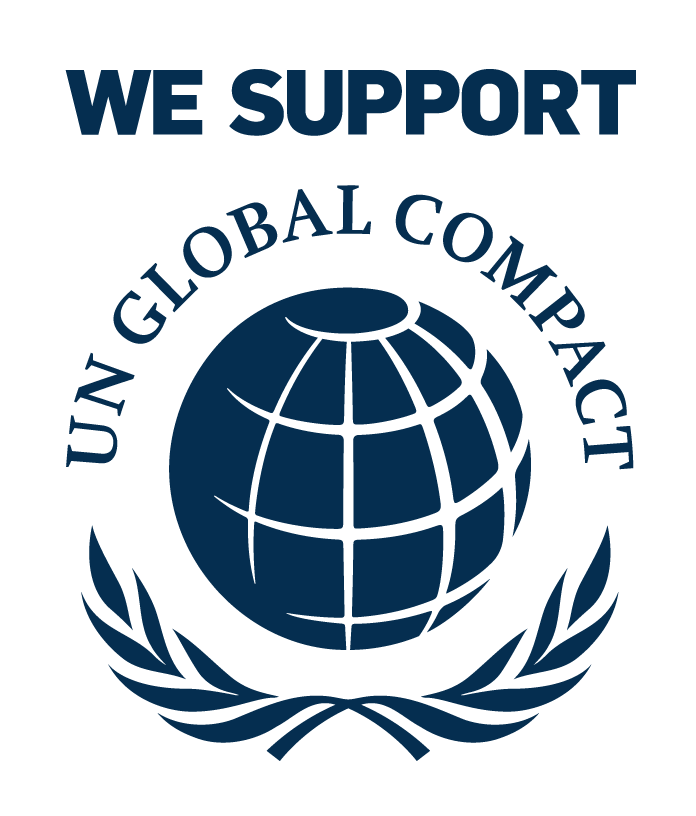ESG POLICY, COMMITMENTS, TARGETS AND COLLABORATIONS
Metrics engages in responsible investment because we believe that environmental, social and governance (ESG) issues can affect, positively or negatively, the financial performance of the entities in which we invest. We are also committed to playing our part in the achievement of the UN Sustainable Development Goals and contributing to a better future.
We acknowledge that, as a fund manager, the main channel through which we can influence the real world is through the companies in which we invest. We accept our responsibility as a fund manager to accelerate and mainstream sustainability across the real economy.
We do not think that responsible investment requires us to sacrifice investment returns. In fact, we believe that entities that do not consider ESG issues present a higher risk to investors and are more likely to negatively impact the long-term, risk-adjusted returns we ultimately deliver.
For us, responsible investment is about achieving superior risk-adjusted returns for investors, and this includes considering how the entities in which we invest manage ESG factors. Responsible investing is more than integration of ESG factors into our investment process. It also extends to portfolio construction, transaction structuring, monitoring and engagement, disclosure and reporting, and responding to opportunities to improve.
As a Signatory of the UN-supported Principles for Responsible Investment (PRI), we are pleased to report on our responsible investment activities annually. Our PRI reports from 2021 onwards are available in the PRI’s Data Portal.
We have also identified reconciliation as a critical component of the equitable society we wish to create. Our efforts in working together with Aboriginal and Torres Strait Islander people aim to reduce inequality, generate decent work and economic growth, and promote the wellbeing of Aboriginal and Torres Strait Islander people. Our ‘Reflect’ Reconciliation Action Plan records our plans for building respect for the knowledge, cultures, and traditional practices of Aboriginal and Torres Strait Islander peoples within our sphere of influence.
DOCUMENTS
Metrics Modern Slavery Statement
OUR CLIMATE COMMITMENTS And Targets
- limiting global temperature rise to well below 2°C above pre-industrial levels and pursuing efforts to limit the temperature increase to 1.5°C above pre-industrial levels, recognising that this would significantly reduce the risks and impacts of climate change; and
- making finance flows consistent with a pathway towards low greenhouse gas emissions and climate-resilient development.
- Metrics commits to increase annual sourcing of renewable electricity from 0% in 2021 to 100% by 2030.
- Metrics commits to reduce absolute Scope 1 and 2 (market-based) GHG emissions 50% by 2030 from a 2021 base year. This includes 100% of Metrics’ Scope 1 and 2 emissions.
- Metrics commits to align its Scope 1 and 2 portfolio temperature score within the asset classes corporate loan, private equity and project finance from 3.2°C in 2021 to 2.3°C by 2027.
- Metrics commits to align its Scope 1, 2 and 3 portfolio temperature score within the asset classes corporate loan, private equity and project finance from 3.2°C in 2021 to 2.5°C by 2027.
- becoming an investor signatory to the Net Zero Asset Managers initiative
- becoming a member of the UN-backed Race to Zero campaign
- joining the Partnership for Carbon Accounting Financials (PCAF)
- committing to work with the Science Based Targets initiative (SBTi) to set science-based emissions reductions targets for our operations and our portfolio
Net Zero Asset Managers initiative (NZAM)
The NZAM initiative is an international group of asset managers committed to supporting the goal of net zero greenhouse gas emissions by 2050 or sooner, in line with global efforts to limit warming to 1.5 degrees Celsius; and to supporting investing aligned with net zero emissions by 2050 or sooner.
Race to Zero
Race to Zero is the UN-backed global campaign rallying non-state actors – including companies, cities, regions, financial and educational institutions – to take rigorous and immediate action to halve global emissions by 2030. All members are committed to the same overarching goal: reducing emissions across all scopes swiftly and fairly in line with the Paris Agreement, with transparent action plans and robust near-term targets. All actors must meet stringent criteria.
Science Based Targets initiative (SBTi)
The SBTi drives ambitious climate action in the private sector by enabling companies to set science-based emissions reduction targets. The SBTi defines and promotes best practice in science-based target setting.
Partnership for Carbon Accounting Financials (PCAF)
Metrics is the first entity in Australia and New Zealand to join the PCAF, an industry-led partnership to facilitate transparency and accountability of the financial industry. PCAF participants work together to jointly develop the Global GHG Accounting and Reporting Standard for the Financial Industry to measure and disclose the greenhouse gas emissions of their loans and investments. By doing so, PCAF participants take an important step to assess climate-related risks, set targets in line with the Paris Climate Agreement and develop effective strategies to decarbonize our society.
Who we collaborate with
We recognise that playing our part in the achievement of the UN Sustainable Development Goals and contributing to a better future will involve collaboration with similarly committed organisations. Where possible, we engage with other stakeholders to encourage greater transparency on material ESG issues and standardisation of reporting requirements on ESG issues from corporations and other entities.
As such, Metrics is proud to be a:
- Signatory of the UN-supported Principles for Responsible Investment (PRI),
- Signatory of the UN Women’s Empowerment Principles,
- Founding Signatory of Aotearoa New Zealand’s first Stewardship Code,
- Founding Member of the Australian Sustainable Finance Institute,
- Member of UN Global Compact Network Australia,
- Bronze Partner of Sustainability Advantage,
- Member of the Investor Group on Climate Change,
- Member of the Asia Pacific Loan Market Association’s Green & Sustainable Loan Committee,
- Supporter of the Transition Pathway Initiative,
- Inaugural Early Adopter of the Taskforce on Nature-related Financial Disclosures (TNFD) and member of the TNFD Forum,
- Member of the Farm Animal Investment Risk & Return (FAIRR) Initiative’s investor network, and
- Signatory to the BBFAW Global Investor Statement on Farm Animal Welfare.
Asia-Pacific Loan Market Association (APLMA)
The APLMA is a professional not-for-profit trade association which represents the interests of institutions active in the syndicated loan markets in the Asia-Pacific (APAC) region.
Metrics is a Member of the APLMA Green & Sustainable Loan Committee, which aims to increase loan market efficiency in bringing capital to support the just transition to a sustainable financial and economic system and produce robust and ambitious green and sustainable loan standards, principles and guidelines.
Australian Sustainable Finance Institute (ASFI)
Metrics is a Founding Member of ASFI, which was established to drive and coordinate the delivery of the Australian Sustainable Finance Roadmap.
The objects of ASFI are to realign the finance sector to create a sustainable and resilient financial system by directing capital to support greater social, environmental and economic outcomes.
Business Benchmark on Farm Animal Welfare (BBFAW)
As a Signatory to the BBFAW Global Investor Statement on Farm Animal Welfare, Metrics has formally recognised farm animal welfare as being material to long-term investment value creation in the food sector, as well as committed to taking account of farm animal welfare in our analysis and engagement of food companies.
Farm Animal Investment Risk & Return (FAIRR) Initiative
The FAIRR Initiative is a collaborative investor network that raises awareness of the environmental, social and governance risks and opportunities brought about by intensive livestock production, providing cutting-edge research, best practice tools and collaborative engagement opportunities to help investors integrate these risks and opportunities into their investment decision-making and active stewardship processes.
Metrics is a proud Member of the FAIRR Initiative’s investor network, helping to build a more sustainable food system by raising awareness of the material risks and opportunities present in global protein supply chains.
Investor Group on Climate Change (IGCC)
IGCC is a collaboration of Australian and New Zealand investors focusing on the impact that climate change has on the financial value of investments. IGCC aims to:
- Raise awareness of the potential impacts, both positive and negative, resulting from climate change to the investment industry, corporate, government and community sectors;
- Encourage best practice approaches to facilitate the inclusion of the impacts of climate change in investment analysis by the investment industry; and
- Provide information to assist the investment industry to understand and incorporate climate change into the investment decision.
Principles for Responsible Investment (PRI)
The PRI is a global network of asset managers, owners and services providers working collaboratively to implement responsible investment into practice. The PRI’s six key Principles for Responsible Investment are:
- We will incorporate ESG issues into investment analysis and decision-making processes.
- We will be active owners and incorporate ESG issues into our ownership policies and practices.
- We will seek appropriate disclosure on ESG issues by the entities in which we invest.
- We will promote acceptance and implementation of the principles within the investment industry.
- We will work together to enhance our effectiveness in implementing the principles.
- We will each report on our activities and progress towards implementing the principles.
Our latest Assessment Report is available on the PRI’s Data Portal.
Stewardship Code Aotearoa New Zealand
Metrics is now a Founding Signatory of Aotearoa New Zealand’s first Stewardship Code. The Code gives investors a clear framework for using their influence to steer the companies they own on critical environmental, social, and corporate governance issues, codifying investor expectations in seeking to achieve long-term value creation – not only for the economy, but also for our environment and society.
Sustainability Advantage
Sustainability Advantage, a program of the NSW Department of Climate Change, Energy, the Environment and Water, is the NSW Government’s business support program partnering with committed organisations to raise ambition, accelerate action and drive operational improvements and innovation across four interrelated areas – Net Zero Emissions, Circular Economy, Nature Positive and the Sustainable Development Goals.
Taskforce on Nature-related Financial Disclosures (TNFD)
The TNFD is a global, market-led initiative with the mission to develop and deliver a risk management and disclosure framework for organisations to report and act on evolving nature-related risks, with the ultimate aim to support a shift in global financial flows away from nature-negative outcomes and toward nature-positive outcomes.
The TNFD is supported by the TNFD Forum, a global multi-disciplinary consultative group of institutions with over 350 Forum members.
The primary role of the Forum is:
- To make themselves available to support framework development and testing activities at the request of the Secretariat.
- To disseminate TNFD information and updates across their own organisations and across external networks – sharing knowledge and building capacity ahead of the launch of the framework in 2023.
Transition Pathway Initiative (TPI)
TPI is a global initiative led by asset owners and supported by asset managers. The TPI aims to assist in the low-carbon transition by providing independent, open-access data showing whether the world’s largest high-emitting companies are adapting their strategies to align with international climate goals.
As a responsible investor, Metrics is proud to be a TPI Supporter. We value the independent insights offered by the TPI across the hardest to abate sectors and support the continued growth of the TPI universe to drive the low-carbon transition.
UN Global Compact Network Australia
Metrics has pledged its commitment to the United Nations Global Compact and supports its Ten Principles on human rights, labour, environment and anti-corruption. We have formally expressed our commitment to making the UN Global Compact and its principles part of our strategy, culture and day-to-day operations of our company, and to engaging in collaborative projects which advance the broader development goals of the United Nations, particularly the Sustainable Development Goals. Metrics is a Member of the UN Global Compact Network Australia and will also be participating in the 2023 Business and Human Rights Accelerator program.
Our latest Communication on Progress is available on the UN Global Compact website.
UN Women’s Empowerment Principles
The Women’s Empowerment Principles (WEPs) are a set of Principles offering guidance to business on how to advance gender equality and women’s empowerment in the workplace, marketplace and community. Established by UN Women and UN Global Compact, the WEPs are informed by international labour and human rights standards and grounded in the recognition that businesses have a stake in, and a responsibility for, gender equality and women’s empowerment.



